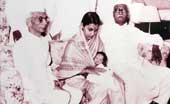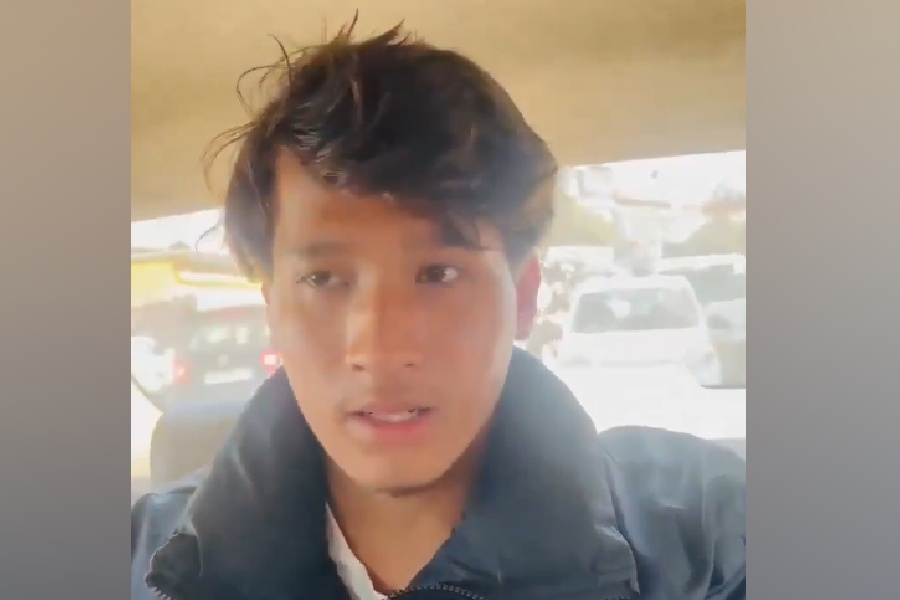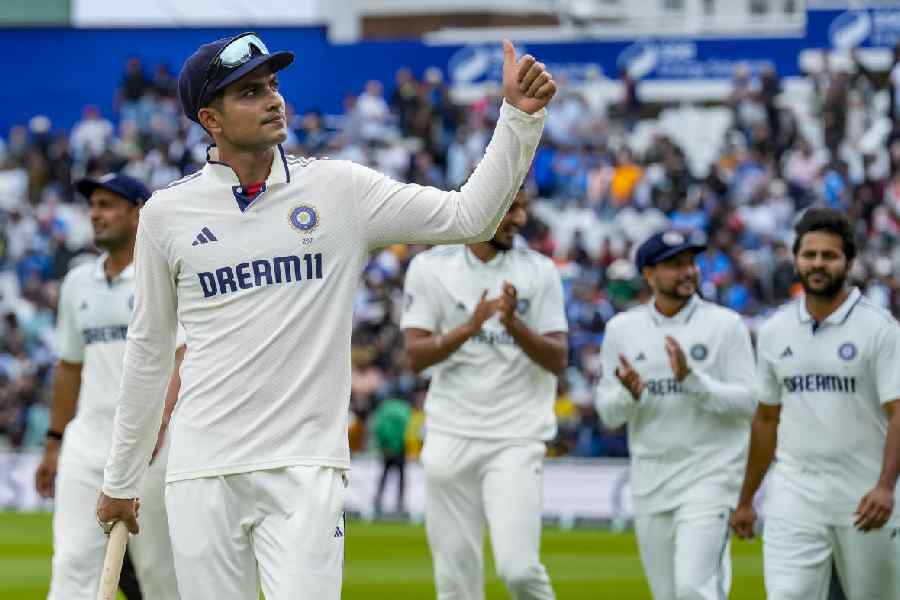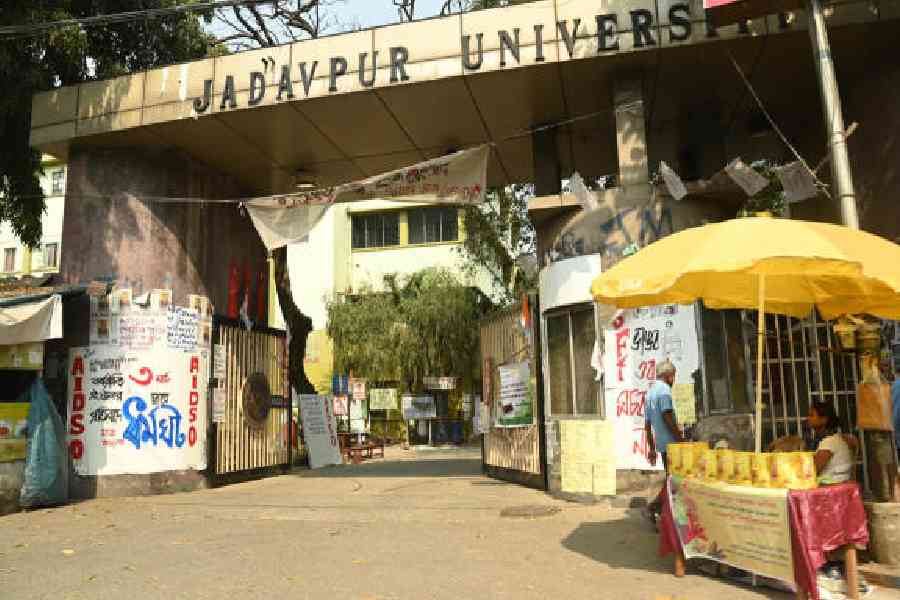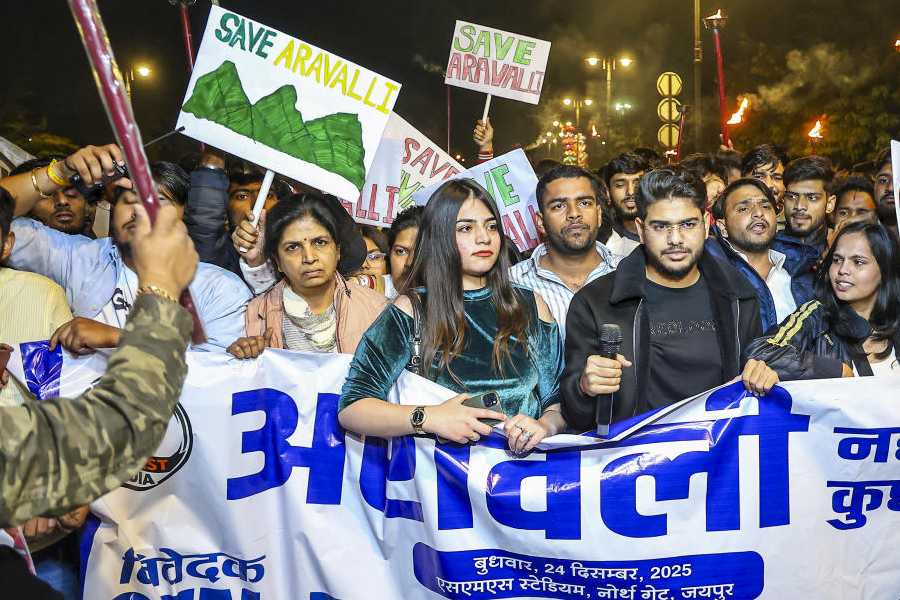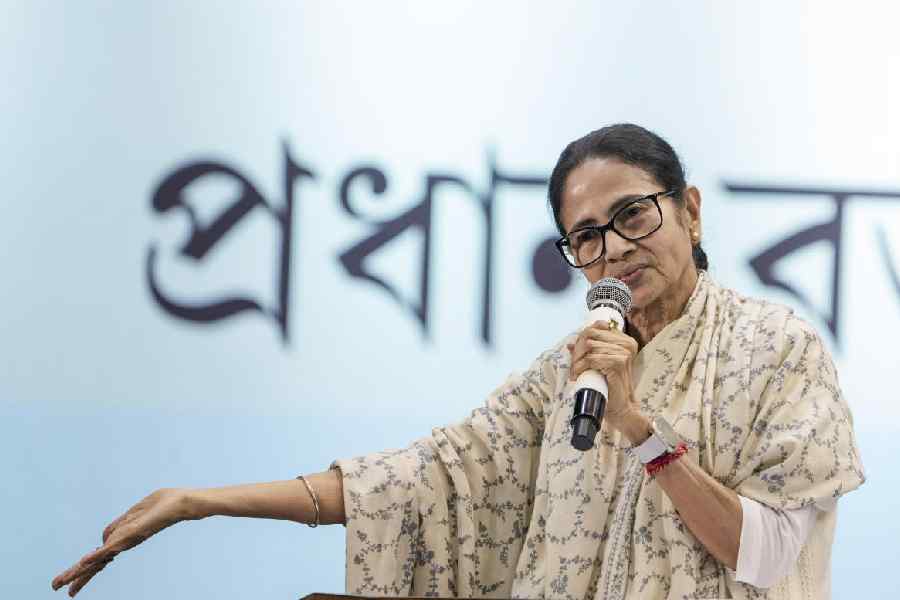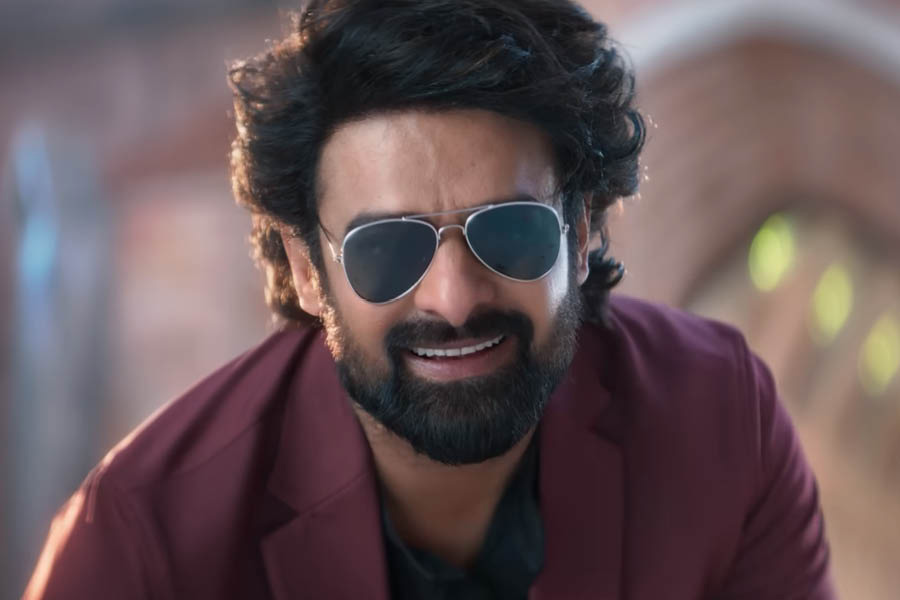 |
| Little Sujata on her mother?s lap (middle) flanked by Rajendra Prasad (right). |
On the 120th birth anniversary of Rajendra Prasad, the first President of Independent India, his great granddaughter Sujata Mitra pays a loving tribute.
I was born in the family of Rajendra Prasad, the first President of India. My mother, Kiran, is his granddaughter.
Though he barely touched my childhood, I was four years old when he passed away, ours was an extended family and we grew up listening to those who knew and loved him and who were able to pass on to us the essence of his simplicity, his values.
As a child, I did not readily disclose my family ties, lest it be construed as boasting, but there were times when I just had to! I remember a history lesson in Class IV. There were small paragraphs on the leaders of the freedom struggle, and I blurted out that the great man being talked of was my Baba ? yes, that?s how all of us, grandchildren and great grandchildren, addressed him. I cannot ever forget the look of disbelief on my teacher?s face.
Baba was the patriarch of the family. His influence on our upbringing was subtle but all-pervasive. His brilliant academic career was often talked of and we grew up putting academics before everything else. I loved to hear stories of his student days, of how he never failed to top an exam.
In the matriculation exam, he stood first in the entire region, which at that time, comprised Bihar, Bengal, Orissa, Assam and Burma. When he arrived in Calcutta to study at Presidency College, Ashutosh Mukherjee, then vice-chancellor of Calcutta University, came to meet him at the Hindu Hostel. He wished to see for himself the rustic boy from Bihar who had challenged the supremacy of the Bengali intellect.
Baba was an early riser and preferred to study in the mornings. This also meant that he couldn?t keep late nights, and often would drop off to sleep over his books. His servant would then carry him up to his room, remove his shoes and put him to bed.
Though he studied history and subsequently, law, mathematics was also his forte. Once he came across one of his old mathematics exercise books that had an unsolved algebra problem. He dredged out from his memory the formulae he learnt 25 years ago and solved the 25-year-old half-finished job. The maths gene passed on to my grandfather (his son, Mritunjay Prasad) and to my mother. Luckily, it has given me the skip.
It was understood that with such a brilliant academic record, an equally bright career in law would follow. The family was not well-off, his elder brother worked to make ends meet. He was also married now and it was expected that he would start earning to give his elder brother a much-deserved break.
In 1910, Gokhale asked him to join the Servants of India society and the moment could very well be defined as the crossroads of Baba?s career. The choice was between a lucrative career in law, with financial security, status in society, the warmth of family life, and the pull of nationalism with a future shrouded in uncertainty.
But Baba had a very clear vision and his dilemma lay elsewhere, not over his decision, but on how to break it to his brother and to his wife. I have roughly translated a portion of his letter to iya (our great grandmother), originally in Bhojpuri, written to convey his decision to her. ?The lust for money is all pervasive?contentment comes with satisfaction, not riches. What is there in my destiny will come to pass. I cannot change that by earning money,? he had written.
He probably lived with the thought that the freedom struggle took him away from his family when they needed him most. In later years, he compensated this by being deeply involved with each member of the family.
In 1946, national politics brought him to Delhi. The family was large ? two sons, a nephew and their families. which was made up of 15 grandchildren. Besides, he had just lost a daughter-in-law, my mother?s mother. He decided that the entire family would shift to Delhi.
The move was traumatic ? from familiar and simple surroundings in Patna to alien and snobbish Delhi. Baba, with all his sensitivity, understood the need of his granddaughters. Captain Palamkote of Tata Steel (who still loves to talk of those days) was his aide-de-camp and he was deputed to teach the granddaughters horse riding, tennis and even swimming.
Usually one or more granddaughter would accompany him to the state banquets. On one occasion, it was my mother?s turn and she was a complete novice to Western dining etiquettes. Palamkote sat right across and helped her choose the right fork and knife right through her meal. It is a family joke today, but I can imagine her plight then.
The family album is a treasure house of photographs of dignitaries who visited Baba and to whom the family would be introduced. There are photographs of Chou en Lai, Marshal Tito and Queen Elizabeth, to name a few.
My mother wished to do her bachelor?s degree in mathematics. In the 1950s, Miranda House was a good all girl?s college, but not for mathematics. Baba did not hesitate to send her to Ramjas College, a coeducational institution. But balancing this unorthodoxy was also a touch of pragmatism. Four sets of salwar kameez in light khadi was ordered (the entire family wore only khadi). Bright colours would not do in a co-ed college!
Life at Rashtrapati Bhavan remained simple and rooted in Bihari ways. Probably Baba?s simple living helped to drive away the British cobwebs from the vice-regal lodge and complete its transformation to a very Indian Rashtrapati Bhavan.
The family would remain without cereals one day in the week as a gesture for the famine-stricken. Sugar was scarce and they had to make do with the amount obtained from the ration shops, so powdered jaggery was used in milk. Bolts of cloth would arrive from the Khadi Bhandar and the ladies of the household would tailor all the dresses. The photographs of the period show children of all ages in attires varying from simple frocks to skirts and salwar kameez, all of the same print!
I faintly remember those first few years of my life spent at Rashtrapati Bhavan. Baba would call for his great grandchildren in the evenings and would sit down for his meal. We would be surrounding him, sharing his food, usually the kheer. He was a frugal eater, a vegetarian and liked his food simple. There would necessarily be dishes of lauki, kaddu, jhinga etc, cooked just with a pinch of salt.
I remember the last journey. My father had been to West Germany on a DAAD scholarship to obtain his Ph.D degree and my mother and I had followed, again at the insistence of Baba, who did not want my father to be alone. We had returned to India, met Baba at Sadaquat Ashram in Patna and then gone to Gaya to meet the rest of the family.
News of his death followed. My mother cried all the way to Patna. We caught up with the funeral procession on its way to cremation. I remember the crowd, the noise, the anguish.
He might not be there but is still very much a part of us, through his values.
(Sujata Mitra is the great granddaughter of Rajendra Prasad. Her father, Mahendra Prasad, is a retired professor and her mother, Kiran, a housewife. Sujata calls herself a Bengali by marriage. Her husband, Abhijit Mitra is a senior executive in TAYO. She herself is a nuclear medicine physician at the Tata Main Hospital. They have a son, Anish who is studying for his engineering degree. )

